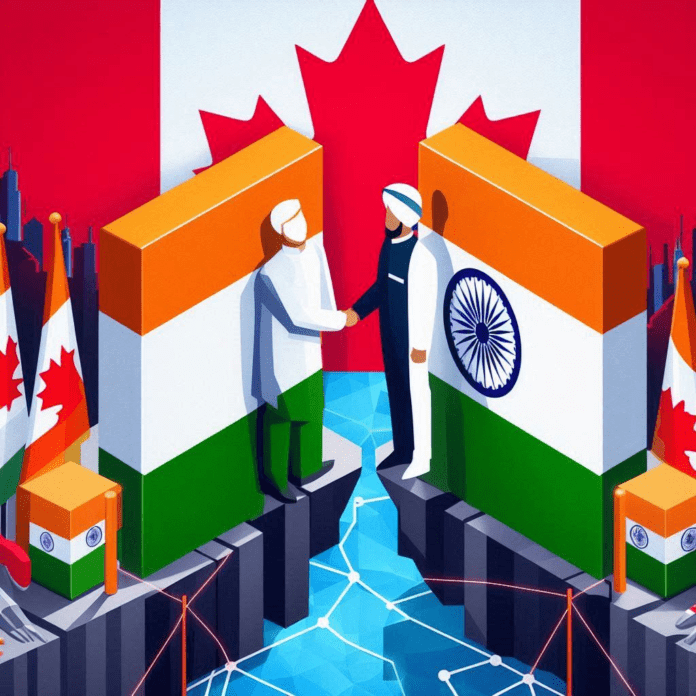In early 2024, David Vigneault, the director of the Canadian Security Intelligence Service (CSIS), made two unannounced visits to India. These visits, occurring in February and March, were significant as they were directly linked to the ongoing investigation into the killing of Khalistani extremist Hardeep Singh Nijjar. Vigneault’s trips highlight the sensitive nature of the case and the strained relations between India and Canada.
The Background of the Nijjar Case
Hardeep Singh Nijjar, declared a terrorist by India, was shot dead outside a gurdwara in Surrey, British Columbia, on June 18, 2023. The murder led to a complex international incident, with Canadian Prime Minister Justin Trudeau alleging in September 2023 that Indian agents might have been involved in Nijjar’s assassination. India firmly rejected these allegations as “absurd,” leading to a diplomatic standoff between the two nations.
Details of Vigneault’s Visits
During his visits, David Vigneault met with Indian officials to share findings from Ottawa’s investigation into Nijjar’s murder. These meetings were kept under wraps, underscoring the delicate nature of the discussions. The CSIS director’s presence in India aimed to provide crucial information and possibly seek cooperation in resolving the case.
Arrests and Diplomatic Tensions
Following Vigneault’s visits, Canadian authorities arrested three Indian nationals—Karanpreet Singh, Kamalpreet Singh, and Karan Brar—on charges related to Nijjar’s killing. A fourth individual, Amandeep Singh, was later arrested.
The three men charged in the alleged conspiracy to murder Hardeep Singh Nijjar — Karan Brar, Kamalpreet Singh and Karanpreet Singh — are all believed to be connected to the Lawrence Bishnoi gang, according to sources involved in the Nijjar investigation.
Canadian police sources say the Bishnoi gang is one of a number of criminal enterprises from the Punjab and Haryana states in northern India that have spread into North America in recent years, even as its founder Lawrence Bishnoi has languished in Indian prisons since 2014.
Punjabi gangsters rap on YouTube, flash guns, vehicles and bling on Instagram and issue threats via Facebook.
Explained: Why the US Isn’t Considering Sanctions Against India
Official Statements about David Vigneault Visit
A Canadian government official confirmed David Vigneault’s travel to India but did not comment on the specifics of the meetings. The official emphasized that Canada had consistently shared all available information with India regarding the Nijjar case. This position has been reiterated by Prime Minister Trudeau and Canada’s Minister for Public Safety, emphasizing Canada’s commitment to truth and accountability.
India, on its part, has maintained that it has not received any specific information from Canada regarding the case. New Delhi’s primary concern has been Canada’s perceived leniency towards pro-Khalistani elements operating from Canadian soil. The Indian government has repeatedly called on Canada to ensure the safety of its diplomats, citing threats from pro-Khalistani groups.
Canada Alleges Indian Involvement in Killing, Russia Demands Evidence
The Diplomatic Fallout
The allegations and subsequent diplomatic fallout led India to request that Canada reduce its diplomatic presence in the country. In response, Canada withdrew 41 diplomats and their family members from India. This move was seen as a direct result of the heightened tensions and the need to ensure parity in diplomatic staffing levels.
You may like to Read About How India’s R&AW Played Role in the Nijjar Case.
David Vigneault’s secret visits to India underscore the intricate and high-stakes nature of the investigation into Hardeep Singh Nijjar’s murder. The case has not only strained relations between India and Canada but also highlighted the challenges of dealing with transnational terrorism and the political ramifications of such incidents. As the investigation continues, both countries will need to navigate these complexities to find a resolution that ensures justice and maintains diplomatic balance.


